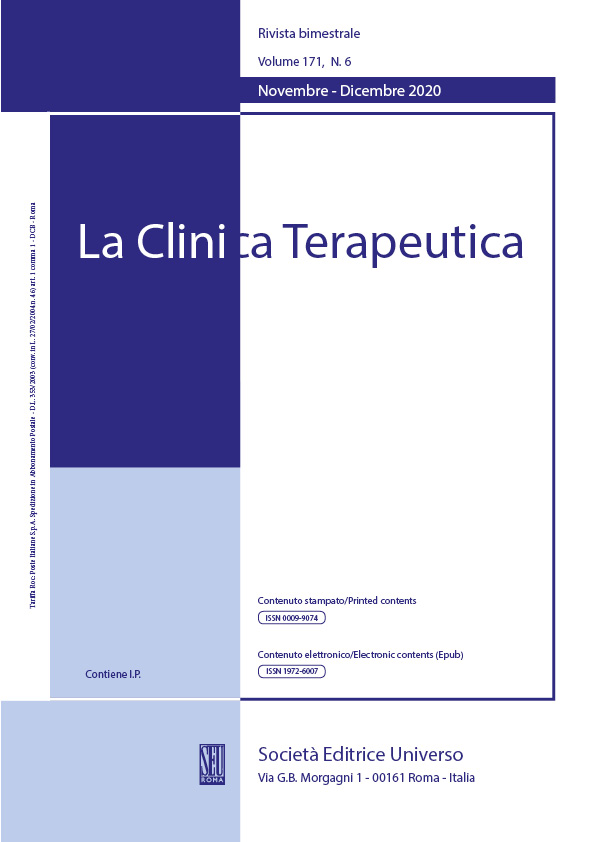Abstract
Purpose
Globally, age and some comorbidities have been associated with the risk of more severe outcomes of COVID-19. The purpose of this research is to calculate the hospitalization rate of SARS-CoV-2 positive patients in an Italian LHA and to examine whether medical comorbidities encoded through pharmaceutical administrative data are predictors of hospital admission in patients with a positive SARS-CoV-2 naso-pharyngeal swab.
Methods
This retrospective observational study was conducted in a LHA of Pescara. Comorbidities were coded through the consumption of drugs, using the WHO's Anatomical Therapeutic Chemical (ATC) classification System. The admission was ascertained by checking the hospital discharge records where generated.
Results
During the study period, 1571 patients were tested positive for SARS-CoV-2 oro-and-nasopharyngeal swab. Multivariable logistic analisys showed as predictors of admission an age ≥65 in the total sample (aOR 10.91; 95%CI 6.86-17.36) as well as in the male (aOR 12.64;95%CI 6.42-24.87) and female. (aOR 9.27; 95%CI 4.87-17.66) in SARS-CoV-2 positive patients. Comorbidities assiociated with admission were (GERD) in overall (AdjOR 1.58; 95% CI 1.06-2.34) and male (AdjOR 2.30; 95%CI 1.12-4.72) samples and anticoagulants drugs use in male (AdjOR 3.90; 95% 1.11-13.65) sample , the presence of congestive heart failure (CHF) in female (AdjOR 0.47;95%CI 0.27-0.83) sample results as protective factor.
Conclusion
In conclusion, increasing age, male gender and PPI use are positively associated while female gender and CHF-related drug use are negatively associated with hospitalization in SARS-CoV-2 positive patients
